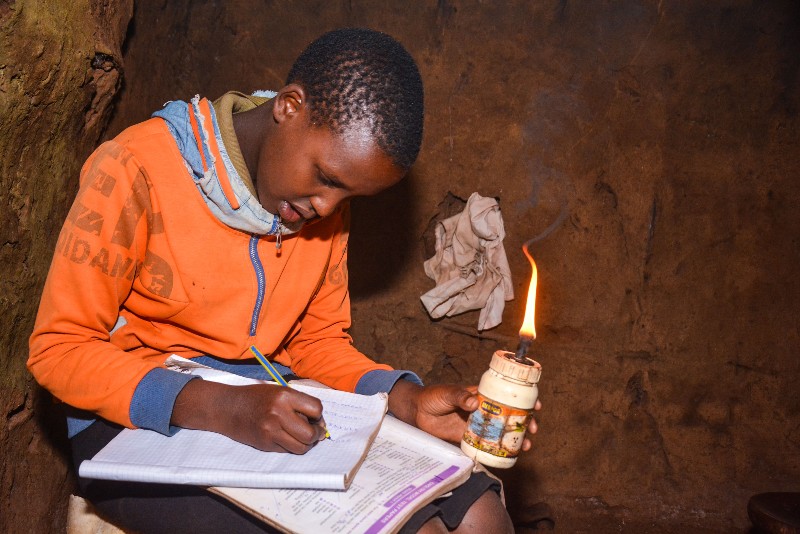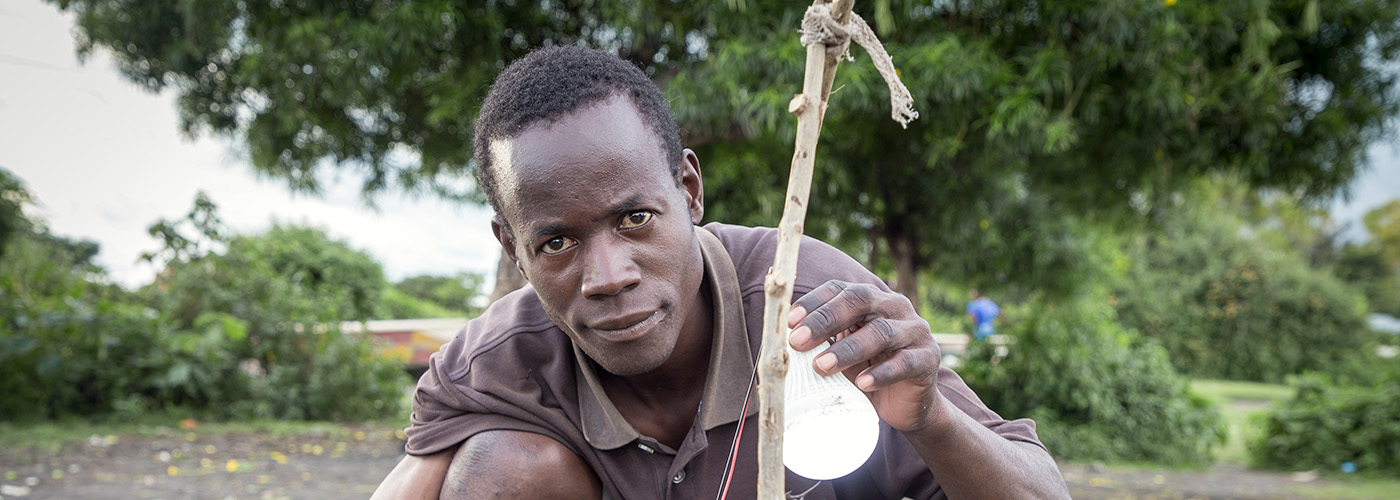Climate change cannot wait. This is a statement that is not far from the truth. Catastrophic environmental disasters have been on the rise through floods, famine and hunger. And now, the world is facing a pandemic that has decimated lives at a massive scale.
At the heart of the climate change debate are also communities in global south countries that have no access to a clean source of energy for their cooking and lighting needs. This continues to exacerbate inequality breaching on critical human rights and locking out many from sustainable human development.

The connection between climate change and renewable energy has never been clearer in current times. In fact, experts argue that renewable energy is an arsenal in fighting climate change.
In Kenya’s Kajiado county, residents of Singiraine village know all too well what it means to have to veer off hungry hyenas from attacking their cattle in the middle of the night due to no electricity.
Their story is also laced with hope and innovation at how they have embraced solar block-chain technology. Equally, they have also become climate justice ambassadors in their own right who are championing local solutions in countering climate change. Piloted by Hivos East Africa, Bithub Africa and Kajiado County government, the solar block-chain project has been a game-changer in boosting clean energy access to residents of Singiraine village.
Africa has an opportunity to leapfrog traditional energy systems for a cleaner greener transition and in order to truly disrupt these systems we need to embrace technologies like “Blockchain”. This pilot project in Singiraine is a one of kind project in the region which demonstrates how innovative thinking can spur local change- Wangari Muchiri
Hivos East Africa’s Sally Akinyi (SA) sat down with John Karanja (JK) from Bithub Africa to have a conversation on the power of block-chain technology in accelerating solar energy access.
SA: Tell me about the Block Chain project and your partnership with Hivos East Africa and the Kajiado county government
JK: BitHub Africa built and piloted a distributed a block chain energy storage and sharing solution called the Melanin Solar Smartbox(MSBX). Partnering with Hivos East Africa we were able to deploy the system in Singiraine village in Kajiado with support from the county government and the community.
The solution was deployed at a local dispensary, school and church with a goal of storing energy digitally as tokens using a system we call the ‘Whive protocol’. This would boost energy sharing between these institutions and eventually distribute to some households.
SA: What’s the fuss about block chain technology in pushing clean energy access?
JK: Blockchain technology- which in our case is the Melanin Solar solution- is useful in providing increased access to distributed energy sources such as solar. It allows for the storage of excess energy in the form of digital tokens, which can be traded on peer-to-peer energy markets seamlessly, in a transparent and accountable manner using the Blockchain.
This has the benefit of turning consumers of solar energy who rely on loans to acquire solar home systems to become prosumers (individuals who consume and produce value) and actually produce, store, and share excess energy with members of their community in a scalable manner.
SA: Do you think it’s the next game changer in Africa?
JK: Yes, Africa has a $2 trillion potential value for peer-to-peer solar energy markets, which we believe, can be powered by block-chain and the Melanin Solar solution in particular.
SA: What’s next?
JK: We continue to test and improve the Melanin Solar solution with the community to ensure it becomes more robust and can eventually scale across Africa and beyond.
Solar block-chain documentary
Watch the documentary on how the new smart grid solar technology backed by block-chain is transforming lives in Singiraine village, Kajiado county.
About solar block-chain project
Solar block-chain in an innovative energy access pilot project with an aim to create solar-based efficient microgrid eco-systems across Africa using block chain technology.
Working with a local private sector tech company: Bithub Africa, Hivos East Africa developed an energy system where local stakeholders can automatically trade electricity between themselves using block-chain technology and mobile money payments.




